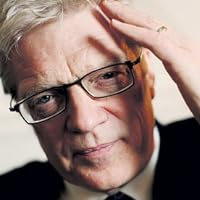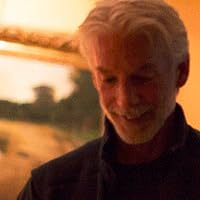Paradigm Quotes
Quotes tagged as "paradigm"
Showing 31-60 of 83

“Copernicus, Galileo, and Kepler did not solve an old problem, they asked a new question, and in doing so they changed the whole basis on which the old questions had been framed.”
―
―

“Female monsters take things as personally as they really are. They study facts. Even if rejection makes them feel like the girl who's not invited to the party, they have to understand the reasons why.
... Every question, once it's formulated, is a paradigm, contains its own internal truth. We have to stop diverting ourselves with false questions. And I told Warren: I aim to be a female monster too.”
― I Love Dick
... Every question, once it's formulated, is a paradigm, contains its own internal truth. We have to stop diverting ourselves with false questions. And I told Warren: I aim to be a female monster too.”
― I Love Dick

“Recovery through sleep isn’t going to happen if the majority of the components of your being aren’t getting enough stimulation or resistance to work against. Your brain may be tired after work, but if your body and emotions haven’t been challenged through the day, they’re going to keep irritating you even if you’re asleep. They don’t need rest; they need work for real recovery to take place.”
― Re:
― Re:

“Laughter has got to be the single healthiest activity one can perform. Just think how healthy you would be if you could sincerely laugh at that which now oppresses you.”
― Re:
― Re:

“Well-being, or wholeness, implies integrity and harmony between all existing elements, providing freedom for the whole.”
― Re:
― Re:

“McKusick's belief in this paradigm-the focus on disability rather than abnormalcy-was actualized in the treatment of patients in his clinic. Patients with dwarfism, for instance, were treated by an interdisciplinary team of genetic counselors, neurologists, orthopedic surgeons, nurses, and psychiatrists trained to focus on specific disabilities of persons with short stature. Surgical interventions were reserved to correct specific deformities as they arose. The goal was not to restore "normalcy"-but vitality, joy, and function.
McKusic had rediscovered the founding principles of modern genetics in the realm of human pathology. In humans as in wild flies, genetic variations abounded. Here too genetic variants, environments, and gene-environment interactions ultimately collaborated to cause phenotypes-except in this case, the "phenotype" in question was disease. Here too some genes had partial penetrance and widely variable expressivity. One gene could cause many diseases, and one disease could be caused by many genes. And here too "fitness" could not be judged in absolutes. Rather the lack of fitness-illness [italicized, sic] in colloquial terms- was defined by the relative mismatch between an organism and environment.”
― The Gene: An Intimate History
McKusic had rediscovered the founding principles of modern genetics in the realm of human pathology. In humans as in wild flies, genetic variations abounded. Here too genetic variants, environments, and gene-environment interactions ultimately collaborated to cause phenotypes-except in this case, the "phenotype" in question was disease. Here too some genes had partial penetrance and widely variable expressivity. One gene could cause many diseases, and one disease could be caused by many genes. And here too "fitness" could not be judged in absolutes. Rather the lack of fitness-illness [italicized, sic] in colloquial terms- was defined by the relative mismatch between an organism and environment.”
― The Gene: An Intimate History

“Let us, thusly, embrace the assumption that to each advocate of a respective paradigm within his respective bubble, the phenomenological gaps between himself and those in neighboring bubbles are insurmountable. The resident of a given bubble has become so inured to the echoes of his own ‘truth’ as to abandon all terms of commonality with the ‘truths’ of others outside his bubble. The internal terms, concepts, definitions and assumptions underlying each paradigm are different and incommensurate with those of their external counterparts. And so, to debate them would be tantamount to speaking through one another without much mutual understanding. In their communities, they speak different words, abide by different sets of logic, axioms and propositions from those of other communities; they, thusly, do not understand the terminology upholding other paradigms beside their own, and many attempts at translation have become lost in circular discourse for there exists no equivalency of terms. Thus, any gaps between bubbles of paradigm are beyond traversal; all arguments between them remain perplexing and irreconcilable. There, then, evolves, among them, a strong tendency to seek out information that only serves to confirm their own biases, and, in the process, to otherize any alien paradigms as hotbeds of disinformation.”
―
―

“The typical image of a depressed, lazy and tired person is someone hunched over and inert. Often, the assumption is that if one had more enthusiasm and inspiration, he would then stand up straight and move. In many cases, this equation is backward. But, as with everything related to one’s physicality, balance is the key. An overly erect and rigid posture may convey confidence and power to some, but it also causes a subtle accumulation of tension and rigidity on various levels, including psychological and emotional.”
― Re:
― Re:

“No one will improve his health significantly without accurately perceiving priorities, knowing clearly what is at stake if those are not attended to and what is to be gained if acted on correctly. That’s the basic homework before any change can come about. Then that knowledge has to be transformed into a sustainable motivation.”
― Re:
― Re:

“In my experience, most people are actually seeking recovery from the monotony and anxiety of qualitative repetition. This applies to body, emotions and mind. And that monotony and anxiety involves inertia just as much as over-use, meaning inertia in some areas and over-use in others.”
― Re:
― Re:

“Physical well-being necessitates listening to what you already know, and then taking it seriously enough to act accordingly. When you wake up and feel the impulse to arch your back, stretch and exhale with a loud sigh, for God’s sake, do it.”
― Re:
― Re:
“Every age, every generation has its built in assumptions, that the world is flat, that the world is round etc. There are hundreds of hidden assumptions, things we take for granted, that may or may not be true. Of-course in the vast majority of cases historically, these things aren’t true. So presumably, if history is any guide, much about what we take for granted about the world simply isn’t true. But we’re locked into these precepts without even knowing it. That’s a paradigm.”
―
―

“This story has never happened but it is real.
Once upon a time, in a surreal paradigm.”
― Talismanist: Fragments of the Ancient Fire. Philosophy of Fragmentism Series.
Once upon a time, in a surreal paradigm.”
― Talismanist: Fragments of the Ancient Fire. Philosophy of Fragmentism Series.

“Once we name something, you said, we can never see it the same way again. All that is unnameable falls away, gets lost, is murdered. You called this the cookie-cutter function of our minds. You said that you knew this not from shunning language but from immersion in it, on the screen, in conversation, onstage, on the page.”
― The Argonauts
― The Argonauts

“The essential dynamic underlying almost every elite and esoteric physical art is work with the breath, so there’s information available. I would only add that it’s unfortunate that so much work is done with it, and not much play. Laughter has got to be the single healthiest activity one can perform. Just think how healthy you would be if you could sincerely laugh at that which now oppresses you. I’ve mentioned before that one good measure of someone’s depth of spirituality is how long it takes before they become offended. Imagine laughing hysterically at the criticisms, complaints and impositions you receive. At the least, you’d be breathing well.”
― Re:
― Re:

“People generally believe that stress is responsible for depletion, but apathy and uninspired systematic repetition are equally responsible. Or rather, systematic repetition produces as much or more stress and anxiety as anything else.”
― Re:
― Re:

“If you’re ignoring a high percentage of the elements of your entire being, and the range of qualities they can naturally engage, there will be no real recovery or progress until you do. The typical relentless worker is just as lazy as the typical indulgent idler; they’re both just going through the habitual motions. To break the repetitive pattern, and discover more energy and effectiveness, one simply must stretch out in all directions, rotating focus and application of the qualities that make up one’s natural versatility.”
― Re:
― Re:
“We need to have a quintessence belief that our deed can fundamentally change the paradigm or way of thinking about dilemmas.”
―
―

“This is the ultimate heresy, then, and a possible outcome of a history of ascent, of system-breaks and paradigm-shifts that are exciting on one level, tedious on another: life characterized by so much somatic security, so much incarnation, that the need for “truth” is far less important than the need for love; and finally, not really in conflict with it. Incarnation means living in life, not transcending it. The last paradigm-shift has to be a shift to a world in which paradigm-shifts become unnecessary, if not actually banal.”
― Coming to Our Senses: Body and Spirit in the Hidden History of the West
― Coming to Our Senses: Body and Spirit in the Hidden History of the West

“Besides having been identified recently as the single most important factor in what men find sexy in women, the list of how correct posture influences internal organs and systems, and also mood and general energy, is very long indeed. Your internal environment depends on the efficiency of the flow of elements within it. Obviously, this includes oxygen, blood, hormones and nutrients, but also all interaction between nerves and the brain. The spine, which is your foundation and support, has a natural position that guarantees the efficiency of movement and interaction of the related elements. Your internal organs are all right alongside the spine and depend on its correct position to function well. Any prolonged restriction or deviation from this natural position will result in some, at least partial, dysfunction. Over a long time, the results can be devastating.”
― Re:
― Re:

“The human body, like the human mind, is best at versatility and adaptability. This is our greatest skill and our greatest chance to unlock natural potential. What that means in terms of physical movement is that a fairly equal amount of time and effort should be allocated to the widest possible range of activity. That includes strength, flexibility, precision and endurance, but it certainly doesn’t stop there.”
― Re:
― Re:

“A balanced diet” is not so much about protein/fat/carbohydrate ratios. The real ratios to consider, at least for the typical American or European, are energy consumption/expenditure, pleasure/actual need, food/everything else.”
― Re:
― Re:

“I look at the idea of rest as rotating one’s qualitative focus, not just doing less or changing activity. The role of rest is recovery. If you keep pushing the same quality button (fast or slow, concentrated or dispersed, hard-working or lazy…) for the same component all the time, of course it’s going to become depleted, just like if you keep working a single muscle in the same fashion or don’t use it at all.”
― Re:
― Re:

“In these and other respects a discussion of puzzles and rules illuminates the nature of normal scientific practice. Yet, in another way, that illumination may be significantly misleading. Though there obviously are rules to which all the practitioners of a scientific specialty adhere at a given time, those rules may not by themselves specify all that the practice of those specialists has in common.”
― The Structure of Scientific Revolutions
― The Structure of Scientific Revolutions

“After the first Neanderthal skeletal remains were identified in Europe in the nineteenth century it was, for a very long while, one of the fundamental unquestioned assumptions of archaeology, a matter taken to be self-evidently true, that other "older," "less-evolved" human species never attained, or even in their wildest dreams could hope to aspire, to the same levels of cultural development as Homo sapiens. During more than a century of subsequent analysis, and despite multiple additional discoveries, the Neanderthals continued to be depicted as nothing more than brutal, shambling, stupid subhumans--literally morons by comparison with ourselves. Since the beginning of the second decade of the twenty-first century, however, and with increasing certainty as the evidence has become overwhelming, a new "image" of the Neanderthals as sensitive, intelligent, symbolic, and creative beings capable of advanced thought processes and technological innovations has taken root among archaeologists and is set to become the ruling paradigm.”
― America Before: The Key to Earth's Lost Civilization
― America Before: The Key to Earth's Lost Civilization

“Worldviews aren’t even directly pragmatic. Many parts of our worldviews don’t even work. They limit us. They interfere with us. They hold us down. Some parts of our worldviews may be accurate while other parts of our worldviews are wildly inaccurate. And yet, every part of every person’s worldview seems accurate to the person who owns the worldview.”
― Exposing the REAL Creation-Evolution Debate: The Absolute Proof of the Biblical Account
― Exposing the REAL Creation-Evolution Debate: The Absolute Proof of the Biblical Account
All Quotes
|
My Quotes
|
Add A Quote
Browse By Tag
- Love Quotes 97k
- Life Quotes 75.5k
- Inspirational Quotes 72k
- Humor Quotes 43.5k
- Philosophy Quotes 29.5k
- Inspirational Quotes Quotes 26.5k
- God Quotes 26k
- Truth Quotes 23.5k
- Wisdom Quotes 23.5k
- Romance Quotes 23k
- Poetry Quotes 22k
- Death Quotes 20k
- Happiness Quotes 18.5k
- Life Lessons Quotes 18.5k
- Hope Quotes 17.5k
- Faith Quotes 17.5k
- Quotes Quotes 16.5k
- Inspiration Quotes 16.5k
- Spirituality Quotes 15k
- Religion Quotes 15k
- Motivational Quotes 14.5k
- Writing Quotes 14.5k
- Relationships Quotes 14.5k
- Life Quotes Quotes 14k
- Love Quotes Quotes 13.5k
- Success Quotes 13.5k
- Time Quotes 12k
- Motivation Quotes 12k
- Science Quotes 11.5k
- Knowledge Quotes 11k



